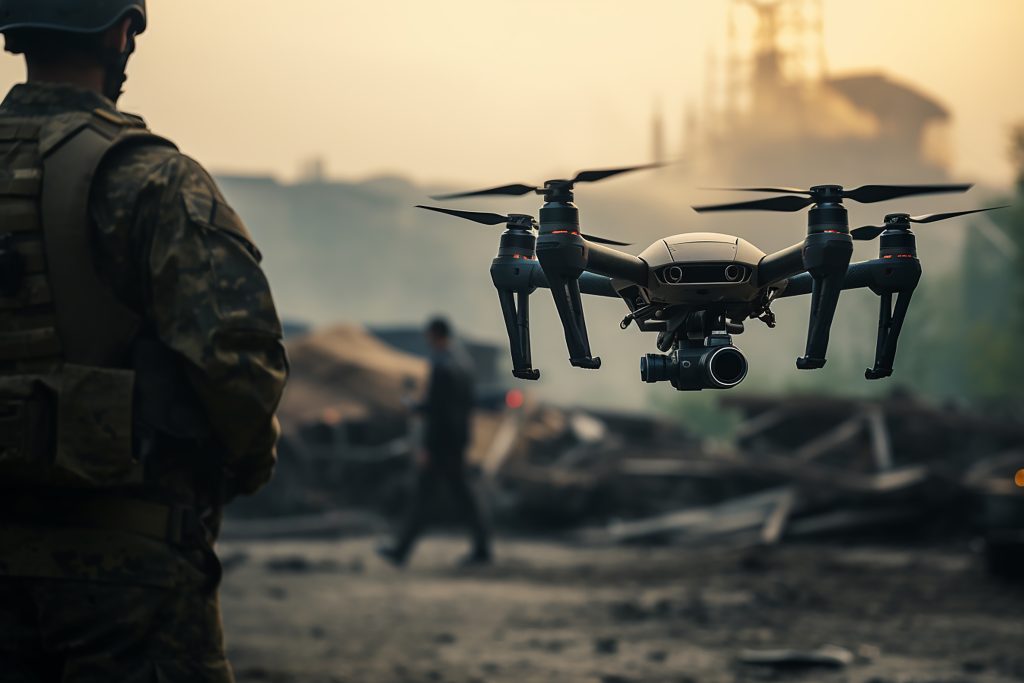AI is becoming the ultimate political weapon — not through violence, but through persuasion. As synthetic media blurs truth, democracy faces a new cold war: one fought through algorithms, attention, and belief.

Propaganda once required armies of writers, editors, and broadcasters. Today, it requires a single model prompt.
Artificial intelligence has democratised manipulation. From deepfakes to micro-targeted persuasion, from synthetic news anchors to generative outrage, politics now operates inside algorithmic architectures optimised for attention — not truth.
The new weapon of war is narrative.
Elections no longer hinge on rallies or manifestos. They hinge on recommendation engines. Platforms like YouTube, TikTok, and X shape political sentiment more powerfully than any debate.
AI personalises persuasion — delivering emotional precision strikes based on behavioural data. It knows which fear to trigger, which anger to exploit, which illusion to sustain.
The battlefield is not the street. It is the feed.
Truth verification has collapsed under the velocity of synthetic media. Deepfake audio, AI-written articles, and fabricated images flood the digital commons. Audiences cannot distinguish authenticity from artifice.
This epistemic crisis is not side effect — it is strategy. When truth becomes uncertain, control shifts from the informed to the manipulative.
In the age of weaponised AI, disbelief becomes default.
Media ecosystems now monetise emotion. Algorithms reward engagement, and engagement thrives on anger. AI-driven platforms have turned politics into performance, outrage into currency.
This economic logic erodes deliberation. Voters become spectators. Public discourse becomes theatre of resentment.
Outrage is not by-product. It is business model.
Nations exploit AI to manipulate foreign electorates, flood information networks, and destabilise rivals. Disinformation becomes form of soft power — low-cost, high-yield warfare.
The old deterrence of nuclear weapons is replaced by narrative deterrence — states threatening reputational destruction through algorithmic influence.
Geopolitics is now psychological.

The weaponisation of AI is not merely political. It reshapes how humans consume reality itself. Media no longer informs; it immerses. Reality becomes subscription service curated by unseen algorithms.
In this landscape, journalism must evolve from reporting events to verifying existence. Truth becomes active process, not passive assumption.
Societies must relearn how to see.
Survival demands literacy, transparency, and algorithmic accountability. Democracies must build epistemic resilience — public education in recognising manipulation, legislating transparency, and designing trustworthy media infrastructures.
AI cannot be unmade, but its use can be civilised. The antidote to weaponised intelligence is ethical intelligence — systems aligned with truth rather than virality.
Ultimately, the future of media consumption depends on citizens’ appetite for authenticity. If societies continue to crave outrage more than understanding, the algorithm will oblige.
Freedom in the age of AI will not be measured by access to information, but by ability to discern it.
Anonymous Contributor — Insider with a View. An industry insider whose position demands anonymity, yet whose knowledge demands to be shared. Reveals the forces shaping industries from within.

At the intersection of brain chemistry and human longing, intimacy between men reveals a landscape of vulnerability, reward, and identity. This article delves into how neural circuits, hormonal dynamics, and psychological frameworks undergird male-male intimacy—why it matters, why it unsettles, and why it offers one of the deepest paths to self-knowledge and human connection. By combining neuroscience, endocrinology, and relational psychology, this piece argues that male intimacy is not a peripheral luxury but a core human imperative: a frontier where biology and spirit collide.

AI is reshaping medicine from diagnostic tool to empathic collaborator — a transformation that redefines care, ethics, and the essence of healing itself.

Across alliances, borders, and institutions, power is increasingly exercised without trust. This article examines how legitimacy—not military strength or economic size—has become the decisive variable in global stability, and why its erosion now threatens international order.